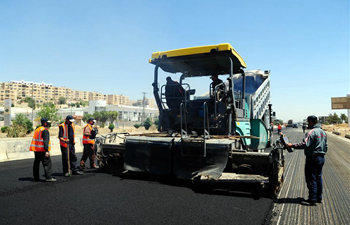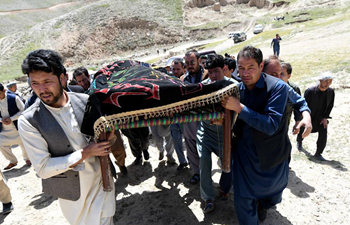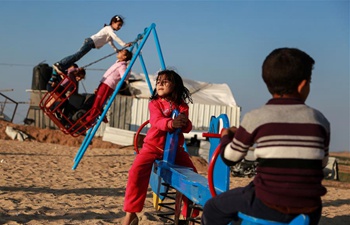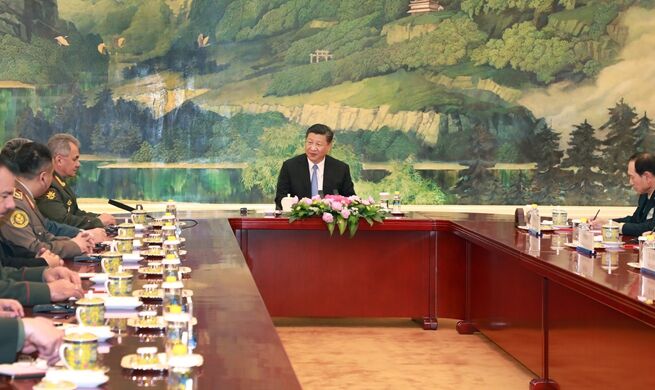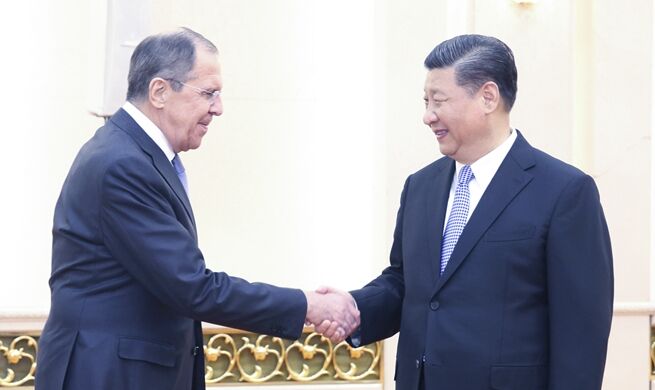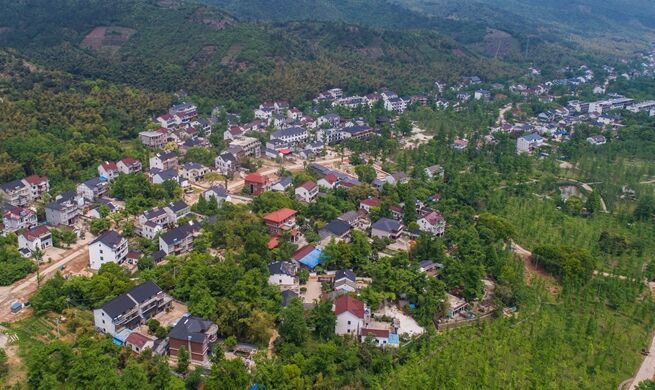GENEVA, April 24 (Xinhua) -- The World Health Organization (WHO) on Tuesday called for increased investments in health to protect the lives of almost 17 million vulnerable men, women and children inside Syria and in five major neighboring countries.
As the international community comes together in Brussels to show support for Syrians and for a political solution to the conflict, critical shortages, insecurity and disrupted systems have left millions of people in need of health aid in the war-torn country.
Meanwhile, Syrians who have fled to neighboring countries find themselves just as vulnerable, with the vast majority living below the poverty line and unable to afford life-saving health care, the WHO warned.
According to WHO statistics, seven years into the crisis have left 11.3 million people inside Syria in need of life-saving and life-sustaining humanitarian health aid, while fewer than half of all public health facilities are fully operational.
Indiscriminate attacks on health care continue; in 2018 alone, there have been eight health workers killed or injured and 74 verified attacks on health facilities. Throughout the country, people are unable to obtain basic, life-saving health care services without being exposed to significant risks on a daily basis.
That includes almost 2.3 million people in hard-to-reach and besieged areas. Hundreds of seriously ill and wounded people living in besieged areas have been denied the right to leave to obtain life-saving health care. Many of them have died as a result.
Even the newly accessible areas are often contaminated with explosive hazards, and those who chose to return to their homes may be more at risk of injuries, exacerbated by the lack of basic health care services in many areas of return.
Meanwhile, the WHO revealed that for almost six million Syrian refugees across the region, the living situation continues to be extremely challenging. Many refugees face psychosocial and physical effects of war and displacement, and are in need for primary, secondary and tertiary health care.
Though national health systems across the region continue to be the primary responders to those health needs, access continues to be limited, not only due to overwhelmed and under-funded health systems, but also due to the financial limitations of the refugees themselves.
The UN health agency concluded that an additional four million host community members are also affected by the refugee crisis and in need of aid. In Turkey, where integration of Syrian health care workers into national health systems is well established, language and cultural barriers remain a challenge.
Within the context of the Brussels conference on Syria, the WHO urged that health is a human right that must be respected by all parties to the conflict, that the attacks on health workers and facilities must stop, and that there must be adequate investment in the health sector of both Syria and neighboring host countries.





